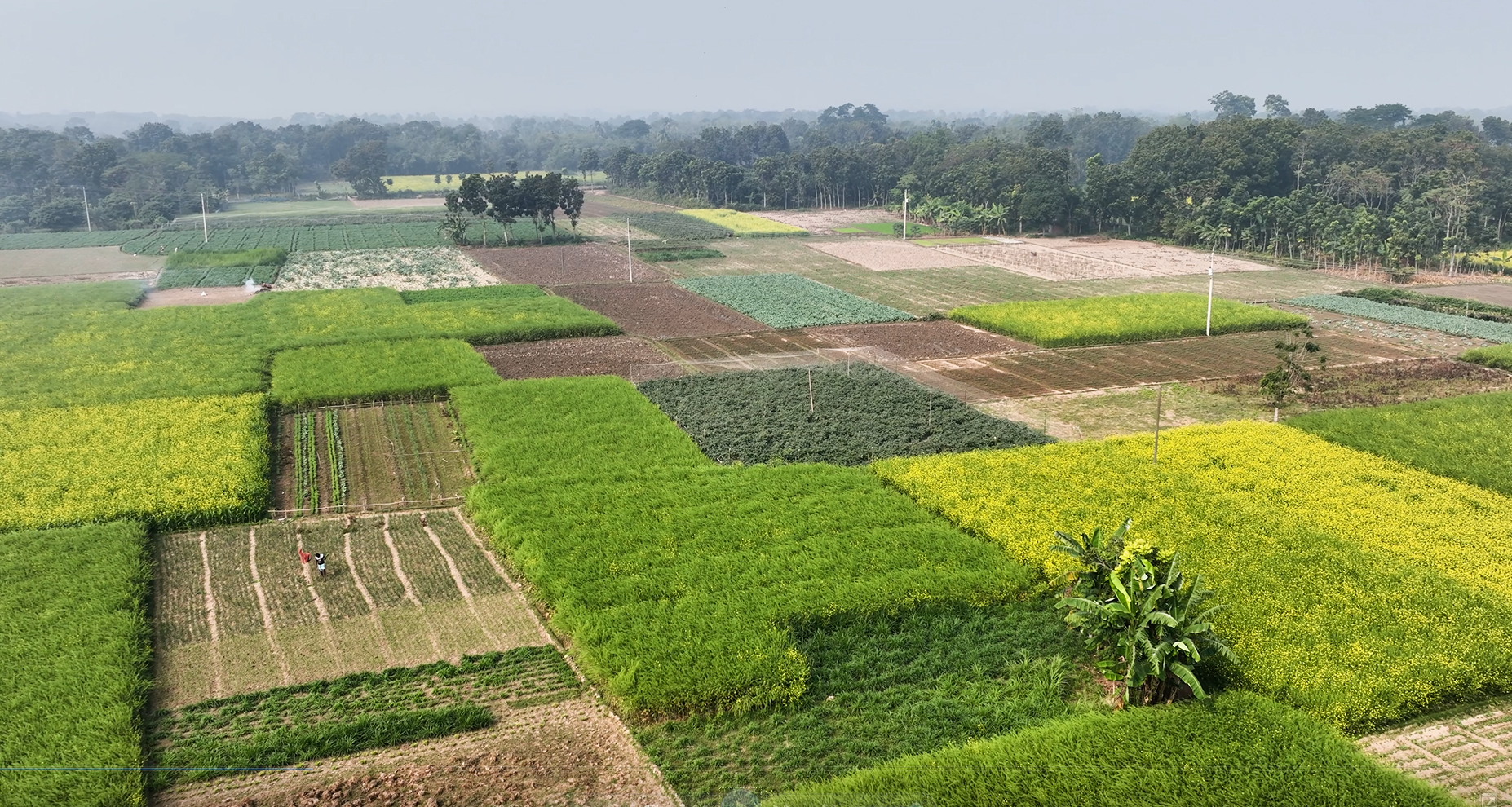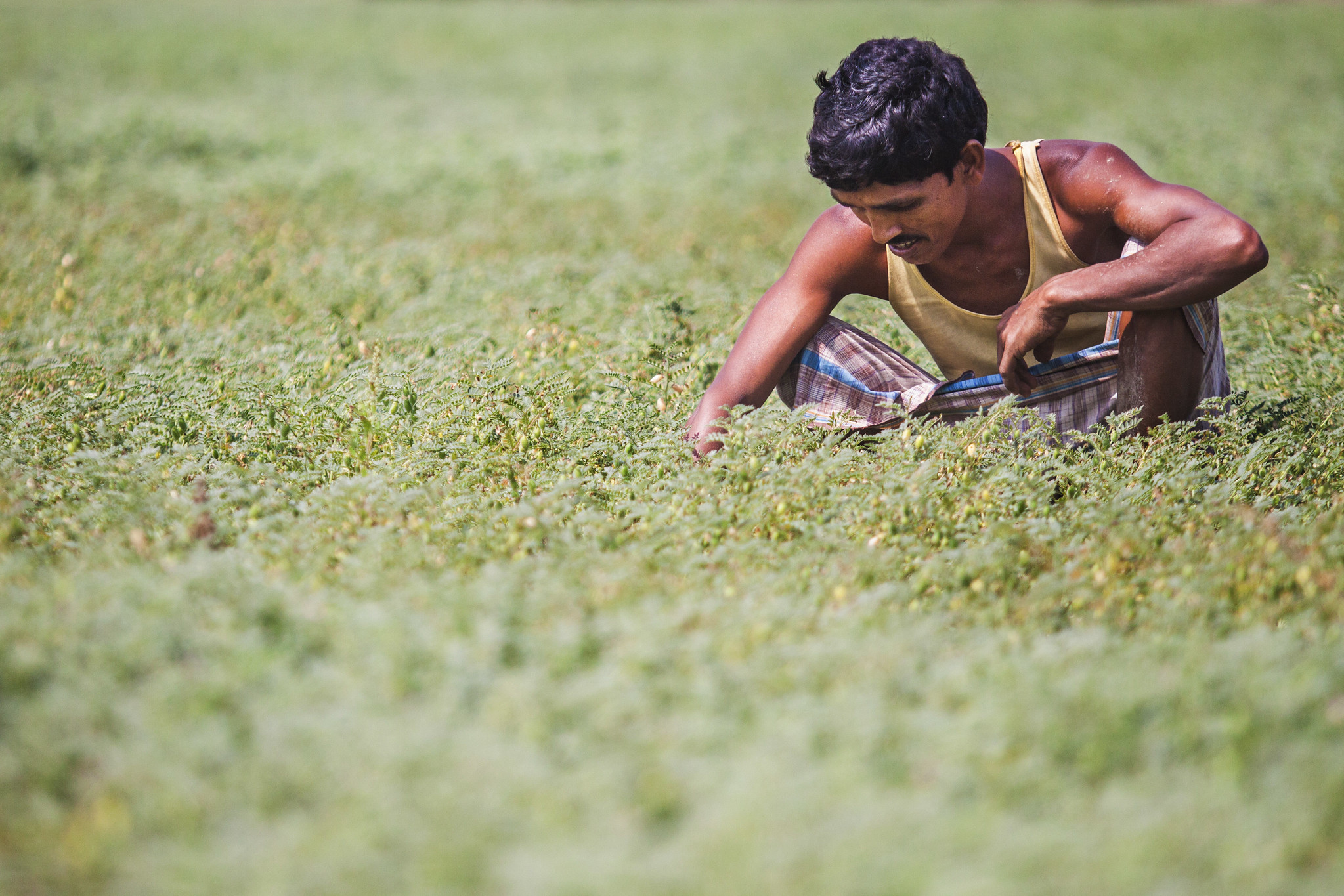Science without policy is just academia; policy without science is just guesswork. Through a blend of robust field research and policy advocacy, CIMMYT aims to bridge the gap between policy and practice in promoting sustainable agricultural practices through crop diversification in South Asia.
Taking Bangladesh as an example, CIMMYT’s work in the country highlights the critical need to link research with policy to achieve sustainable agricultural practices, enhance food security, and improve farmer livelihoods.
The power of research-informed policy
Bangladesh’s agriculture is highly rice-centric; although rational, this is risky and arguably unsustainable. This means there needs to be a focus on crop diversification, which is one of the approaches toward sustainable agriculture that can address socioeconomic and environmental challenges.
Recognizing these challenges, CIMMYT has been at the forefront of developing solutions by conducting extensive multi-location on-site and on-farm trials that consider the socioeconomic and pedoclimatic dimensions of farm households.
Additionally, CIMMYT analyzes historical policies and initiatives that have been implemented by the Bangladeshi government and international partners to promote crop diversification. Several opportunities for improvement were identified in past policies and project implementation; addressing these challenges requires bridging the gap between policies and research to scale up crop diversification efforts.
Through the RUPANTAR and CGIAR Transforming Agrifood Systems in South Asia (TAFSSA) projects, CIMMYT-Bangladesh has developed an analytical tool to understand the political economy of crop diversification policies and practices. When applied to agriculture policy research, this tool can be tailored to any country and policy context in South Asia.
Problem-solving for sustainable farming
Our policy-specific research, such as “Decoding the reality: Crop diversification and policy in Bangladesh”, has identified areas where policy and practical changes can drive significant improvements.
For example, while the government recognizes crop diversification in its agriculture policies starting with the Fifth Five-Year Plan, substantial funding for crop diversification efforts was only recently allocated. Integration of crop diversification into the government’s annual funding systems is essential to mainstream crop diversification in agriculture.
Many crop diversification policies and projects primarily focus on production, neglecting market systems development for new crops. Similarly, research suggests insufficient attention is paid to cold storage and other infrastructure needed to support diversification.
Most initiatives appear to have been project-driven, resulting in short-lived action without long-lasting impact. Insufficient coordination and support from government agencies appears to have affected projects led by both governments and development partners.
Stakeholder engagement spreads awareness
Without translating research into policy, we leave innovation on the shelf. CIMMYT-Bangladesh disseminates research findings to policymakers through the country Priority Investment Plan for the crop sector at the Bangladesh Agricultural Research Council (BARC), and South Asian Association for Regional Cooperation (SAARC) member countries through regional consultation workshops on accelerating the transformation process for sustainable and nutrition-sensitive food systems.
Looking ahead, CIMMYT’s efforts in South Asia remain dedicated to bridging the gap between research and policy. Ongoing projects aim to generate robust evidence, advocate for informed policy decisions, and foster partnerships across sectors. By continuing to lead in this space, CIMMYT strives to contribute to a more resilient agrifood system for South Asia.

 Capacity development
Capacity development 
